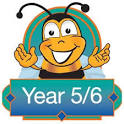Internet Safety
E-Safety Lead - Miss Smith
The internet is an amazing resource which enables children and young people to connect, communicate and be creative in a number of different ways, on a range of devices. However, the internet is always changing, and being able to keep up to date with your children’s use of technology can be a challenge. You may sometimes feel that your children have better technical skills than you do, however children and young people still need advice and protection when it comes to managing their lives online. Issues that your child may encounter on the internet will vary depending on their age and online activities. We have grouped potential online risks into these 4 categories.
Sharing:
Children need to be aware of the impact that their online activity can have on both themselves and other people, and the digital footprint that they create on the internet. It’s easy to feel anonymous online and it’s important that children are aware of who is able to view, and potentially share, the information that they may have posted. When using the internet, it’s important to keep personal information safe and not share it with strangers. Discuss with your child the importance of reporting inappropriate conversations, messages, images and behaviours and how this can be done.
Content:
Some online content is not suitable for children and may be hurtful or harmful. This is true for content accessed and viewed via social networks, online games, blogs and websites. It’s important for children to consider the reliability of online material and be aware that it might not be true or written with a bias. Children may need your help as they begin to assess content in this way. There can be legal consequences for using or downloading copyrighted content, without seeking the author’s permission.
Contact:
It is important for children to realise that new friends made online may not be who they say they are and that once a friend is added to an online account, you may be sharing your personal information with them. Regularly reviewing friends lists and removing unwanted contacts is a useful step. Privacy settings online may also allow you to customise the information that each friend is able to access. If you have concerns that your child is, or has been, the subject of inappropriate sexual contact or approach by another person, it’s vital that you report it to the police via the Child Exploitation and Online Protection Centre (www.ceop.police.uk). If your child is the victim of cyberbullying, this can also be reported online and offline. Reinforce with your child the importance of telling a trusted adult straight away if someone is bullying them or making them feel uncomfortable, or if one of their friends is being bullied online.
Commercialism:
Young people’s privacy and enjoyment online can sometimes be affected by advertising and marketing schemes, which can also mean inadvertently spending money online, for example within applications. Encourage your children to keep their personal information private, learn how to block both pop ups and spam emails, turn off in-app purchasing on devices where possible, and use a family email address when filling in online forms.
As part of our HOME LEARNING section, we will encourage regular opportunities for the children to learn how to stay safe, including a year group 'Safeguarding Deck' that will provide children with advise.
Parents, carers and children are reminded to report any worries they may have using this link
At The Beeches Primary School, our main priority is to keep children safe. In an ever-growing digital age, we understand that our curriculum needs to reflect the changes and dangers to children when working online.
Through our Computing and PSHCE curriculum, and assemblies and theme days, we educate, model and expose children to the dangers of cyber bullying and exploitation.
The school curriculum enables children to use the internet to support their learning. Through our rigorous filters, children are able to access many resources which support their development and understanding of the curriculum.
If, as a parent, you would like to experience a flavour of the areas we discuss in the development of children’s understanding of internet dangers, please take the time to watch the videos linked to the pictures below or read our posters attached to the bottom of the page.
KS1 Children KS2 Children


